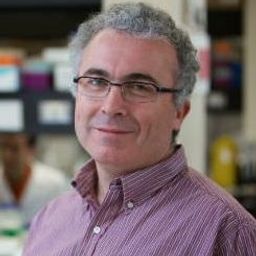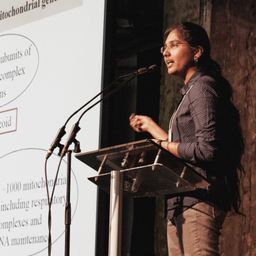An alkaloid extracted from the senegalese flora inhibits replication of the dengue virus genomic RNA
My Session Status
An alkaloid extracted from the senegalese flora inhibits replication of the dengue virus genomic RNA
Seydou Ka1*, AïssatouAïcha Sow2*, Natacha Merindol1*, Amita Singh3, Lionel Berthoux3, Laurent Chatel-Chaix2, Isabel Desgagné-Penix1
1Dept of chemistry, biochemistry and physics,
UQTR, Trois-Rivières, Qc
2Centre Armand-Frappier
Santé Biotechnologie, INRS, Laval, Qc
3Dept of medical biology, UQTR, Trois-Rivières,
Qc
*These authors contributed equally to
this work.
Dengue virus (DENV), an enveloped RNA virus of the flavivirus genus, infects an estimated 100 to 400 million people each year worldwide, killing more than 10,000. No drug has been approved for the treatment of this infection. A vaccine was introduced a few years ago but is impractical, since it is not recommended for children who have not had prior exposure to the virus. Consequently, there is an urgent need to identify new lead molecules that could be developed into novel pharmaceutical drugs for the treatment of severe DENV infection. Alkaloids are a large family of organic compounds that are produced by bacteria, fungi and plants. Many alkaloids are known for their medicinal properties, and one of them, lycorine, was previously demonstrated to inhibit DENV. We have extracted novel alkaloids from a plant of the Amaryllidaceae family found in Senegal. The purified compounds were tested for their antiviral activity against DENV serotype 2 (DENV2) as well as the Zika virus (ZIKV). One of the novel alkaloids, Compound 285, inhibited DENV2 infection of Huh7 cells with an EC50 of 5-10 μM, whereas the CC50 was higher than 100 μM. Compound 285 also inhibited ZIKV, albeit slightly less efficiently. Time-of-addition and time-of-withdrawal experiments identified the early post-entry replication steps as the ones affected by the drug. Using luciferase-expressing subgenomic replicons, we found that protein translation from the DENV RNA was not inhibited by Compound 285, whereas RNA replication was. In conclusion, we have identified a putative anti-flaviviral lead compound toward the development of novel antiviral medicines for one of the most prevalent neglected tropical diseases. It is likely that larger screens would identify additional anti-flaviviral alkaloids in plants.





Discussion